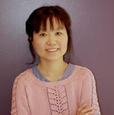Characterized by irregular and rapid heart rate, shortness of breath and weakness; atrial fibrillation is a serious medical condition that requires treatment. It can increase the risk of heart failure, stroke and other complications related to the heart.
Evidence-based research found on www.hindawi.com/journals has gathered evidence that yoga, diet and the use of Acupuncture for Atrial Fibrillation are vital in treating and altering a patient’s electrical system.
Symptoms and Types
One of the main signs experienced is heart palpitations with sensations of a racing and uncomfortable heartbeat accompanied by weakness and fatigue. There is also a reduced ability to exercise, feelings of light-headedness and chest pains or chest pressure. Atrial Fibrillation is of different types, depending on how often they occur and how long the symptoms last. Paroxysmal atrial fibrillation occurs occasionally. The symptoms last anywhere from a few minutes too many hours. The symptoms can happen repeatedly, go on their own or even require treatment. Patients with persistent Atrial Fibrillation will need electric shocks or medications, and maybe even Acupuncture for Atrial Fibrillation to restore the rhythm of their heart. Long-lasting Atrial Fibrillation lasts as long as 12 hours, sometimes even longer. Medications will need to be taken to control the heart rate and reduce blood clots. If acupuncture can be combined with medications, the normal heart function can be restored much faster.
Causes and Risk Factors
Very often damage to the structure of the heart can be the primary cause of Atrial Fibrillation. Other common causes include heart attacks, high blood pressure, sleep apnea, diabetes, lung and kidney disease, obesity, abnormal heart valves, congenital heart defects, coronary artery disease, hyperthyroidism, metabolic imbalances, and high levels of stress with abnormal levels of cortisol. Research also shows that certain stimulants like caffeine, alcohol, and medications can also cause Atrial Fibrillation. Lung diseases like pneumonia and viral infections can be the causes of improper functioning of the heart as well.
Complications and Prevention
Atrial Fibrillation can lead to blood clots because of the irregular movement of the heart muscles. The blood clots could travel to the brain, which could result in a stroke. Blood thinners, as well as Acupuncture Atrial Fibrillation, can reduce the risk of a stroke and protect vital organs. Atrial fibrillation could also lead to heart failure because of insufficient blood flow to the coronary arteries and exhaustion of the heart muscles. A change in habits and incorporation of a healthy lifestyle can reduce the symptoms and risks of Atrial Fibrillation. People must eat a diet that provides sufficient vitamins and minerals, involve themselves in physical activity, avoid smoking and excessive coffee, maintain healthy body weight, and avoid insomnia and lung infection. Keeping stress and anger at a lower level will help keep atrial fibrillation under control.
Acupuncture can redirect energy to your heart, enhance heart function and reduce stress. Furthermore, acupuncture can balance your nervous system, regulating your heart rate to a slower, healthier rate. Once your heart muscles become stronger and your nervous system is balanced, the heart will function more efficiently and the heart rate will become regular.
Dr. Li Zhenge author and Jessica Ward is a co-author of this article. Dr. Li Zheng is a licensed acupuncturist and herbalist and graduated from the Beijing University of Chinese Medicine. She has 26 years of clinical experience. Jessica Ward is a first-year student in New England Acupuncture School of MCPHS. In this article, she talks about acupuncture for atrial fibrillation.

Post new comment
Please Register or Login to post new comment.